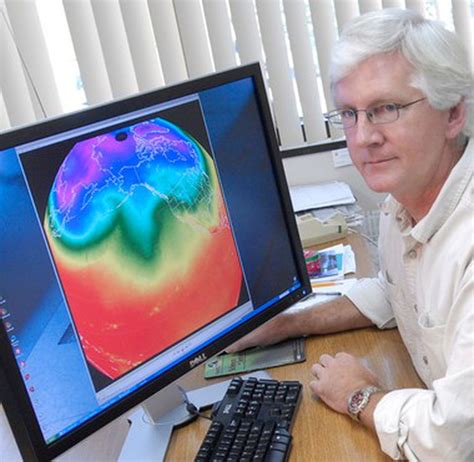A Quote by Gregory Bateson
There is a strong tendency in explanatory prose to invoke quantities of tension, energy, and whatnot to explain the genesis of pattern. I believe that all such explanations are inappropriate or wrong.
Related Quotes
All scientists should be skeptics. The reason why is that, even with the best of scientific measurements, we can come up with all kinds of explanations of what those measurements mean in terms of cause and effect, and yet most of those explanations are wrong. It's really easy to be wrong in science ... it's really hard to be right.
Look at the pattern this seashell makes. The dappled whorl, curving inward to infinity. That's the shape of the universe itself. There's constant pressure, pushing towards pattern. A tendency in matter to evolve into ever more complex forms. It's a kind of pattern gravity, a holy greening power we call 'Viriditas' and it is the driving force in the cosmos. Life, you see.
If I as a geologist were called upon to explain briefly our modern ideas of the origin of the earth and the development of life on it to a simple, pas- toral people, such as the tribes to whom the Book of Genesis was addressed, I could hardly do better than follow rather closely much of the language of the first chapter of Genesis.




































